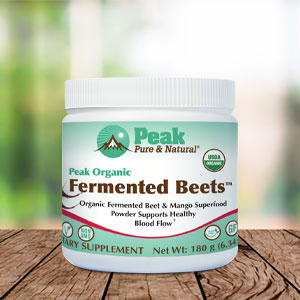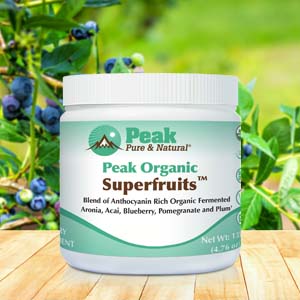Get Easy Health Digest™ in your inbox and don’t miss a thing when you subscribe today. Plus, get the free bonus report, Mother Nature’s Tips, Tricks and Remedies for Cholesterol, Blood Pressure & Blood Sugar as my way of saying welcome to the community!
A ‘food compass’ for healthy eating made easy

I often wish eating heathy was simpler.
As much as I know processed foods aren’t good for me, it’s so much quicker and easier to grab a sandwich or takeout on a busy workday than to prepare a meal with healthy ingredients from scratch.
Even with takeout, I try to make my choices as healthy as possible. But sometimes I get bogged down in deciding exactly what is considered healthy.
For instance, some experts treat all types of bread as if they’re pure evil, while others say whole-grain bread’s actually really good for you. There are entire diets built around steaks and bacon, while others recommend a plant-based approach.
How am I supposed to know which advice to take?
I’m willing to bet you’ve felt the same way at least once or twice. That’s why scientists at Tufts University’s Friedman School of Nutrition Science and Policy have designed a new food scoring system to help guide us in making more nutritious choices…
Is it as simple as “eat your veggies”?
Food Compass is a research-driven guide that grades ingredients and entire meals to help us navigate the maze of conflicting information on nutrition.
“Once you get beyond ‘eat your veggies, avoid soda,’ the public is pretty confused about how to identify healthier choices in the grocery store, cafeteria, and restaurant,” says Dariush Mozaffarian, dean of the Friedman School and part of the team of researchers who created Food Compass.
“Consumers, policymakers, and even industry are looking for simple tools to guide everyone toward healthier choices,” he adds.
Other dietary systems focus mostly on harmful factors like salt, sugar or fat, zeroing in on just a few nutrients and ingredients. Food Compass goes further by considering each food’s health-promoting qualities and drawing on cutting-edge research to grade foods across nine categories.
Some of the categories include the types and amounts of nutrients, how much they’ve been processed, the presence of additives like food colorings and preservatives and whether the ingredients are linked to adverse health conditions.
Each of these scores is then combined to produce a final grade. Foods that score between 70 and 100 are excellent additions to your diet. If it falls between 31 and 69, it should be eaten in moderation. And anything that scores 30 or below you should consume rarely if at all.
Most vegetables, fruits, beans, nuts and seeds score on the high end of the scale, with many raw fruits and vegetables achieving a perfect score.
For instance, spinach scores a perfect 100 because it’s rich in vitamins, minerals, fiber and other compounds that promote wellness. And chana saag, a minimally processed Indian dish of spinach, tomatoes, chickpeas and spices, also scores a 100.
On the other hand, most meats land in the “moderate” to “limited” category in terms of Food Compass scores. And most desserts and processed snacks have very low scores, meaning you should try to limit or avoid them.
One example is frozen yogurt, which is often perceived as a healthier substitute for ice cream. While ice cream does indeed score lower on the Food Compass (at 11), frozen yogurt still only scores a 23 because it’s often high in sugar, low in fiber, and lacking in heart-healthy unsaturated fats.
The scientists note that the Food Compass scoring system can continue to evolve with advances in nutrition research. And while no single food by itself can make for a perfect diet, Food Compass can point the way to a healthier overall eating plan.
Eggs not as healthy as breakfast cereal?
From the sampling of scores released by the Friedman School, it appears that they’re recommending we choose plants over animals when it comes to our meals.
For example, when Food Compass rated different fats, olive oil was the clear winner, with a score of 81. It’s got a great ratio of unsaturated to saturated fat and contains bioactive phenolics, powerful antioxidants that play a vital role in defense responses such as anti-aging and anti-inflammatory activities. Most other fruit, nut and seed-based oils came in high on the Food Compass scale as well.
By contrast, butter received an abysmal score of 6, and lard landed at 16. These animal-derived products are loaded with artery-clogging saturated and trans fats.
Bucking the trend of low-carb diets, Food Compass graded whole wheat bread at 60. This is because consuming a moderate amount of fiber-rich whole grains can protect against many diseases. On the flip side, white bread gained a score of 6, since it lacks fiber. Also, the refined grains used in white bread have been linked with diseases like diabetes when eaten regularly, not to mention risk for heart attack and stroke.
One of the more surprising scores was for eggs. Even though their image has been redeemed somewhat in recent years eggs scored at 48 on the Food Compass scale. This suggests they should only be consumed in moderation despite being high in protein and micronutrients like phosphorus, calcium and potassium — likely because of their high cholesterol content. A healthier breakfast choice according to Food Compass is plain instant oatmeal (75), which has whole grains and fiber that can support a healthy heart.
Another interesting score was for potato chips, which came in at 52, relatively high for snack food. And sweet potato chips scored even better at 68 due to their higher fiber and nutrient content. They shouldn’t replace fresh fruits or vegetables. But if you’re craving a quick snack on the road and the mini mart’s your only option, they’re not a bad choice.
Editor’s note: There are perfectly safe and natural ways to decrease your risk of blood clots including the 25-cent vitamin, the nutrient that acts as a natural blood thinner and the powerful herb that helps clear plaque. To discover these and other secrets of long-lived hearts, click here for Hushed Up Natural Heart Cures and Common Misconceptions of Popular Heart Treatments!
Sources:
Eat Healthier With the Help of a New Food Scoring System — TuftsNow
Food Compass is a nutrient profiling system using expanded characteristics for assessing healthfulness of foods — Nature Food
Comparative analysis of bioactive phenolic compounds composition from 26 medicinal plants — Saudi Journal of Biological Sciences















